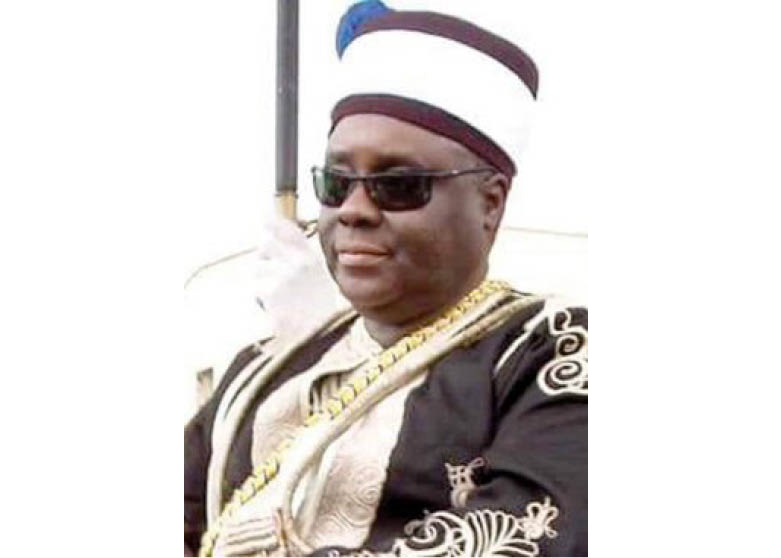‘Traditional leaders play critical role in education’
The outcome of a technical committee set up by Governor Mai Mala Buni to revitalize basic and secondary education has shown that 40 per cent of school-age children in Yobe State do not go to school. Decades of neglect and mismanagement have reportedly left schools with crumbling infrastructure, dearth of working materials as well as […]

Emir of Fika, Muhammad Abali Ibn Muhammad Idriss
The outcome of a technical committee set up by Governor Mai Mala Buni to revitalize basic and secondary education has shown that 40 per cent of school-age children in Yobe State do not go to school.
Decades of neglect and mismanagement have reportedly left schools with crumbling infrastructure, dearth of working materials as well as teacher deficit, posing threat to quality education at basic and secondary levels in the state.
Worried about the challenging situation, Governor Buni resolved to declare a state of emergency in the education sector in the state in his inaugural speech. The essence is to ensure the delivery of quality education.
To achieve that, a summit was convened in Damaturu, the state capital, where stakeholders in education and policy makers in other sectors in the state brainstormed on more feasible ideas to chart a way forward.
Shortly after the summit, a technical committee was raised under the chairmanship of the former vice chancellor of University of Maiduguri, Professor Mala Daura, which generated an interim report on what should be done to change the situation.
Part of the committee’s recommendations was that, decline in the role of traditional institutions was responsible for the low enrolment and attentance in the schools, hence the need to crank up their roles.
Emir of Fika, Muhammad Abali Ibn Muhammad Idriss, who is Chairman of Yobe Council of Chiefs, observed that the change of the role of traditional rulers in education was responsible for the enrolment crisis in the state.
He said in the pre-independence period, primary education was in the hands of the traditional institutions; “they monitored enrolment drive, attendance, teacher codes of conduct and even school curriculum.”
According to him, the Native Authority (NA) police were used during that period to arrest parents who denied their children access to schools while the Alkali Courts were empowered to sanction erring parents in accordance with NA laws that dealt with school enrolment.
“This system helped in providing former and present crops of respected administrators and technocrats,” he said.
He called for the resuscitation of the role of traditional institutions in the provision of primary and post primary education while advising government to re-introduce Teacher Training Colleges (TTC) to provide training courses for aspiring teachers.
A paper presented by the Dean, Faculty of Education, University of Maiduguri, Professor Yusufu Gana Balami, described ‘parents apathy, disinterest, dislike, indifference or rejection and nonchalance’ as the major challenges of basic education in the state.
The paper entitled ‘Strategies of Motivating Parents and Pupils Towards Enhancing Enrolment, Attendance and Learning Outcomes’, highlighted that massive grassroots public enlightenment campaign at community level will improve enrolment.
A baseline report conducted by the technical committee in 1,439 schools across Yobe showed that overstretched resources relating to teachers, infrastructure and other facilities had been the major challenges of the sector.
However, many scholars, religious and traditional rulers, are of the belief that societal perception about western education must be reorganised for basic education to be well fostered in the state.
Commenting on the findings, Governor Buni expressed optimism that the recommendations of the committee would provide government the solutions to adopt to resolve the educational problems in the state.
On the committee’s report on the menace of out-of-school children and other problems, Buni said the state would do things differently; the first of which would be to prudently identify and solve the state’s humanitarian crisis.
He said: “First, we must avoid the temptation to assume that our education challenges can be addressed simply by throwing money into the problems in the sector. If we do not have good ideas, if we do not identify specific medium-to-long term trends that affect overall outcomes, our schools would remain in the same place even if we budget everything we have in the state into them.
“Issues such as good nutrition for children are important, because a malnourished child is simply ill-equipped to internalize learning patterns.”
The governor also quoted Professor Kole Shettima as saying: “If children are malnourished, their brains will not develop no matter the number of classrooms we build, teachers we recruit, or stationeries that we purchase.”
Buni also said there were adequate plans for teacher development, community involvement in boosting enrolment figures, infrastructural development and partnership.
He commended the committee and promised to implement the approved recommendations in the short, medium and long term basis within the limit of available resources.
He directed the Secretary to the State Government (SSG), Baba Malam Wali, to study the recommendations of the technical committee for immediate implementation by government in conjunction with relevant agencies.
